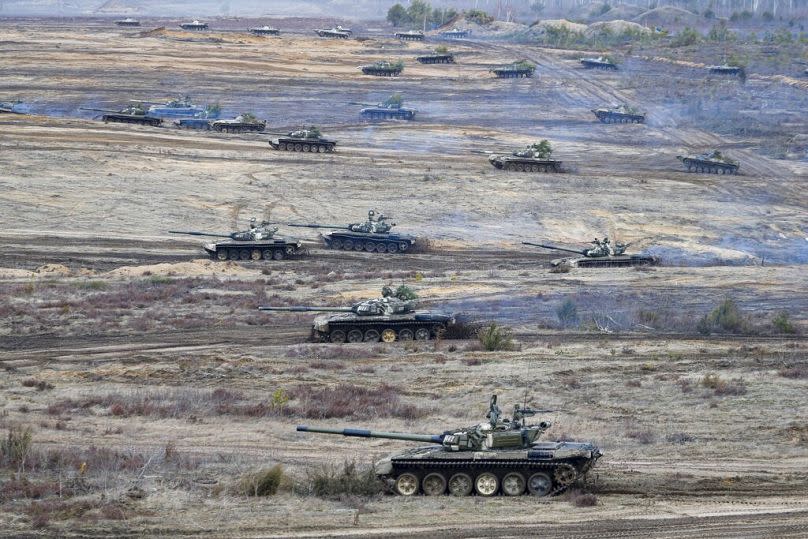Hybrid war: NATO sounds alarm over 'hostile' Russian activity across Europe

NATO has issued a sharp warning over "hostile" Russian activity across Europe.
In a statement released on Thursday, the 32-member military alliance said it was "deeply concerned about recent malign activities" by Moscow, which it called a threat to Western security.
It pointed to "disinformation, sabotage, acts of violence, cyber and electronic interference... and other hybrid operations."
Czechia, Estonia, Germany, Latvia, Lithuania, Poland and the UK have all been affected, according to NATO.
The US-led military alliance called these incidents "part of an intensifying campaign of activities which Russia continues to carry out across the Euro-Atlantic area, including on alliance territory and through proxies."
"We support and stand in solidarity with the affected allies," NATO said in its statement, condemning "Russia's behaviour".

"We will continue to boost our resilience and to apply and enhance the tools at our disposal to counter and contest Russian hybrid actions and will ensure that the alliance and allies are prepared to deter and defend against hybrid actions or attacks."
President Vladimir Putin's full-scale invasion of Ukraine in 2022 has sparked the worst tensions between Russia and the West in recent history, with most European capitals and Washington firmly supporting Kyiv.
The fallout has led to fiery rhetoric and forms of hybrid war, which blend conventional military force with unconventional economic, political and social activities.
Speaking exclusively to Euronews in September, Estonia's Foreign Minister Margus Tsahkna warned of Moscow sending migrants across their 300-kilometre-long border as a form of hybrid attack.
Baltic countries have warned repeatedly that Moscow has been intentionally jamming GPS navigation systems in their region, causing major disruption in air travel.
NATO vowed in its Thursday statement member states would not be deterred from providing Ukraine with much-needed military and financial assistance as it battles the Russian army.
The alliances's statement comes amid a spike in charges and investigations into individuals allegedly linked to Moscow.
A German army captain admitted to spying for Russia and leaking state secrets at a court in the western city of Dusseldorf in April. Meanwhile, a British man was charged with working for the Russian mercenary group Wagner.
In late April, a Russian citizen was arrested for the murder of two Ukrainians at a shopping centre in the village of Murnau in Upper Bavaria. The investigation is ongoing, with authorities stating that a political motive for the killing "cannot be ruled out at this stage".
These cases are the tip of the iceberg, however.
The European Parliament, in March, said it was "looking into" claims MEPs were paid to spread Russian propaganda.
European lawmakers issued a resolution firmly denouncing such efforts in April, following several revelations of what the Parliament called "Kremlin-backed attempts to interfere with and undermine European democratic processes."
"Any such tactics, they say, must have consequences," it said in a statement published on 25 April.


